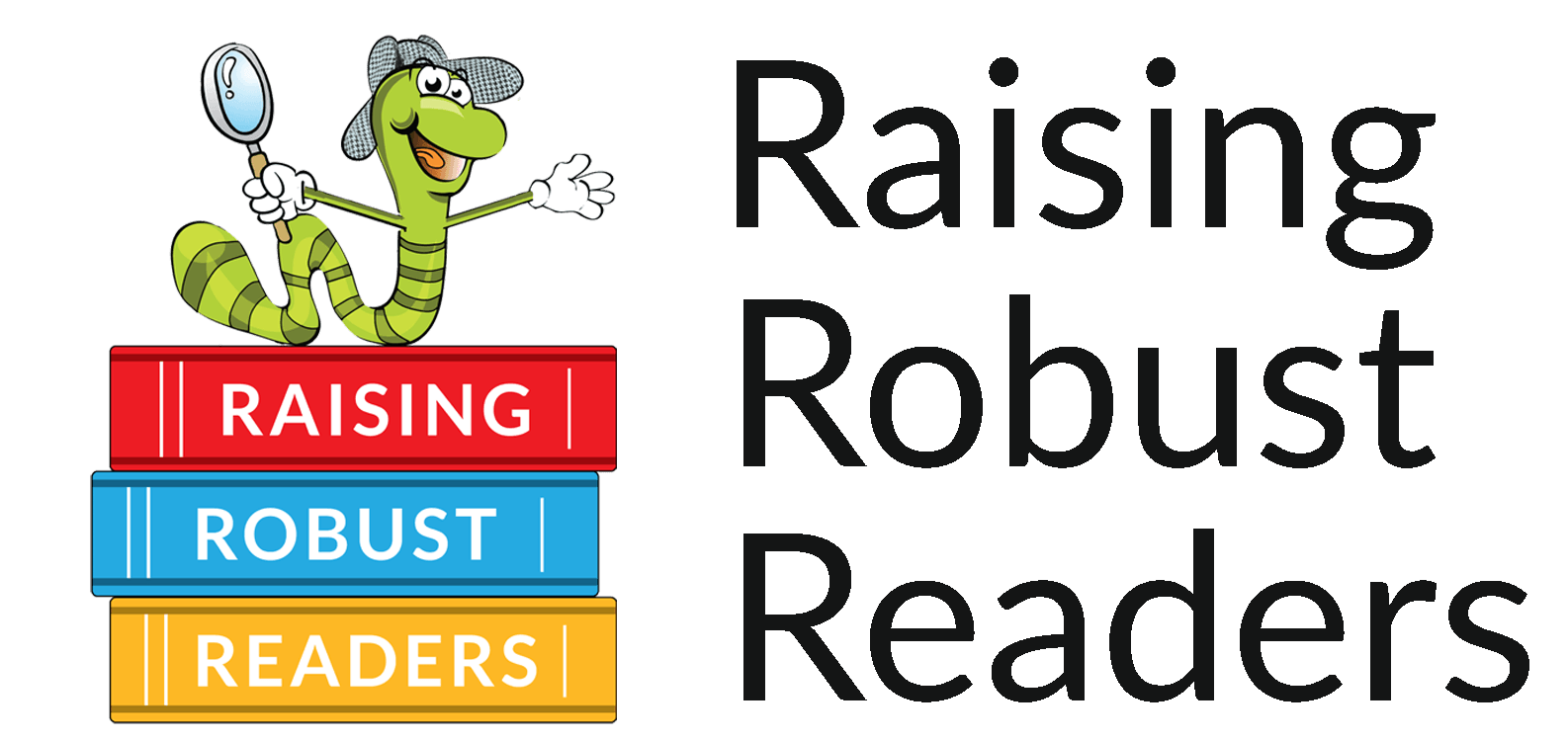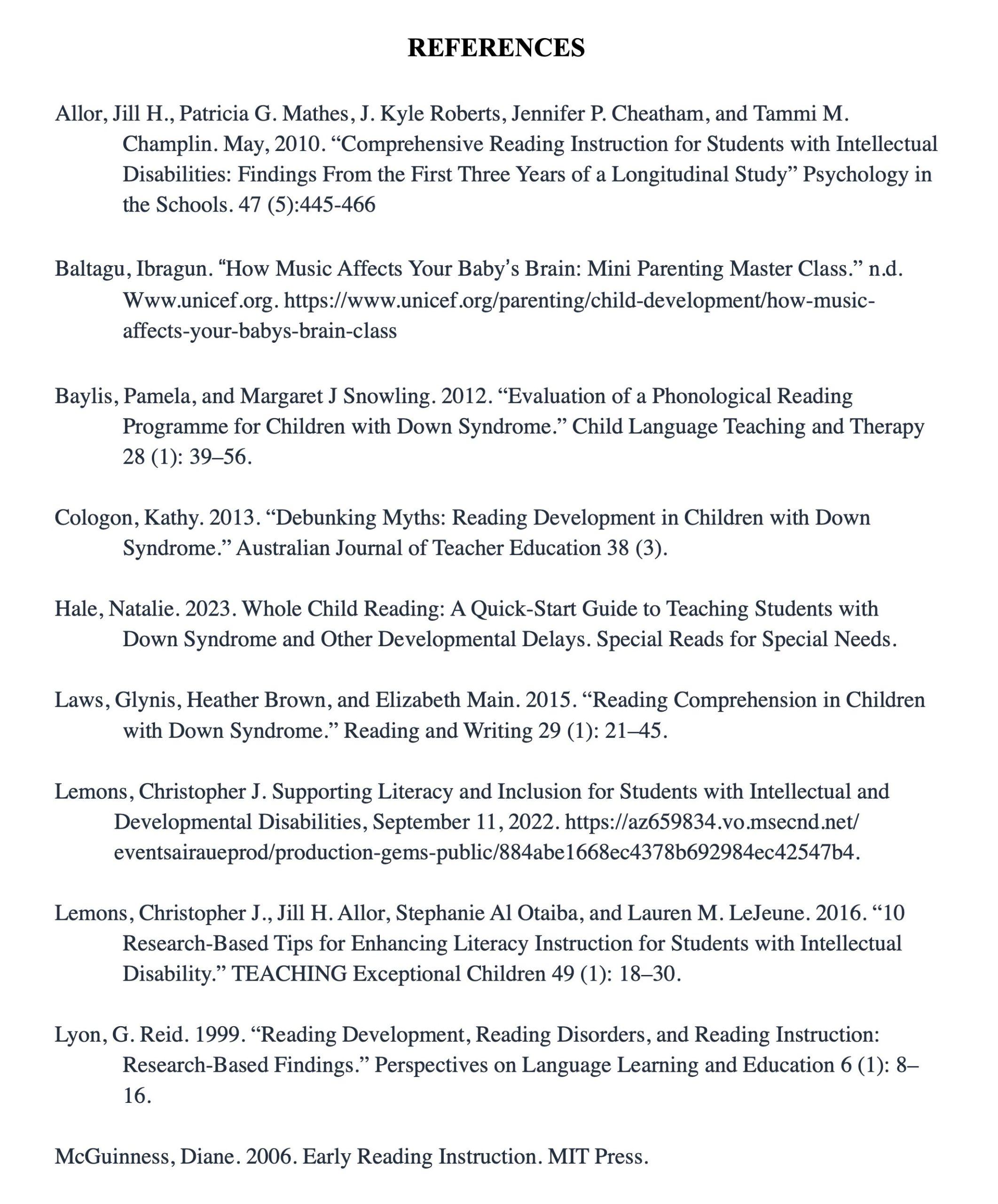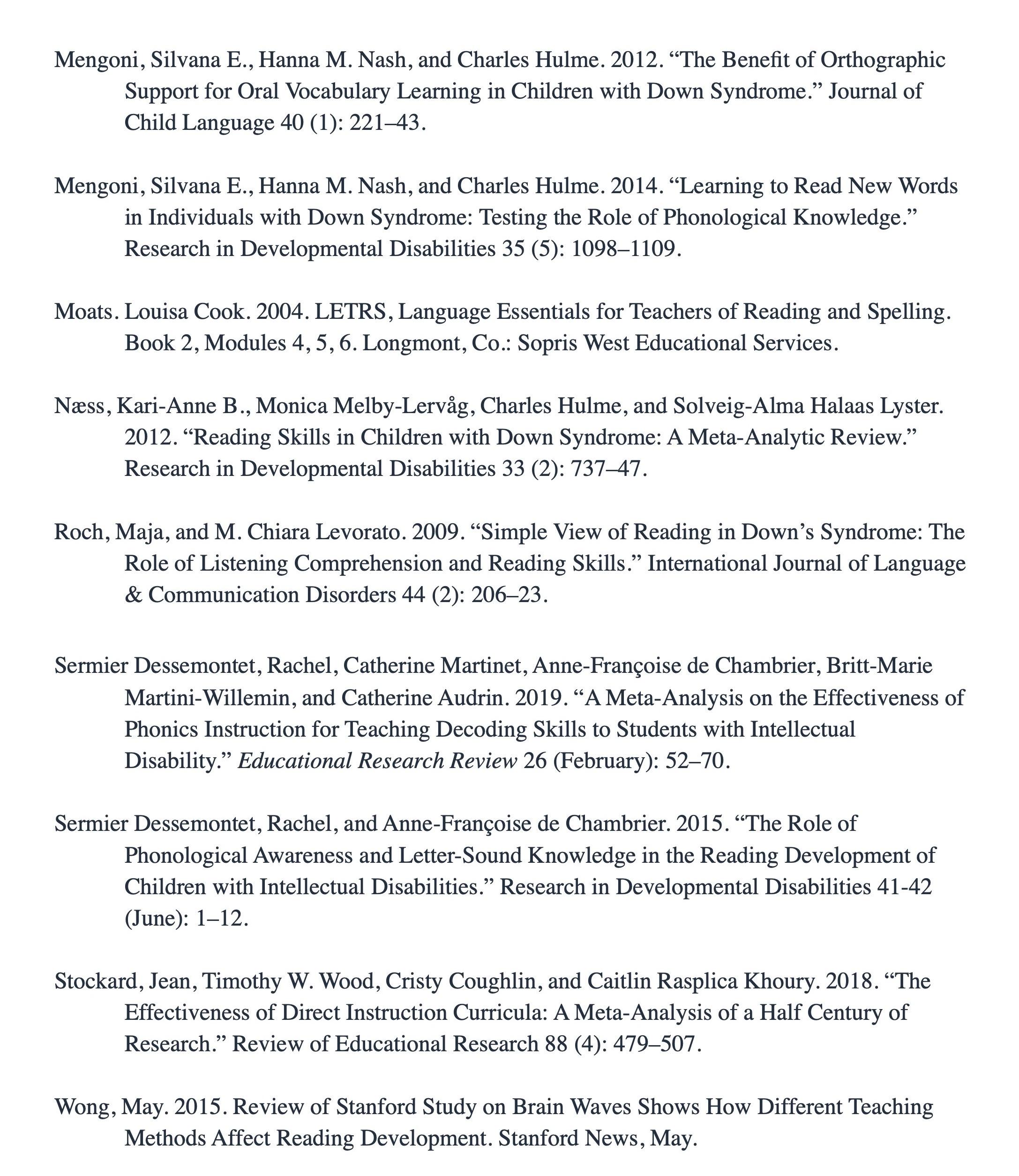OUR FAVORITES
Facebook Group Page: Phonics for Folks with Down Syndrome.
Admittedly, recommending this page created by Raising Robust Readers™ may seem self-serving. But it is actually member-serving. Families and professionals join to learn and share practical information and experiences. It is a community of members who care about their children and their students with Down syndrome and want the best for them.
Reading Rockets is our five-star recommendation as a one-stop shop for gaining information on all aspects of reading. Simplified summaries on the scholarly articles are a real plus. But, then again, everything they produce is a real plus. Their website description reads, “Reading Rockets is a national multimedia project that offers a wealth of research-based reading strategies, lessons, and activities designed to help young children learn how to read and read better. Our reading resources assist parents, teachers, and other educators in helping struggling readers build fluency, vocabulary, and comprehension skills.” (readingrockets.org)
AMP Reports: Sold a Story Emily Hanford, Senior Education Correspondent with America Public Media. Since 2017, Emily has produced a series of podcasts that bring to light the woeful state of reading scores, the reasons, and some important solutions. She has accomplished what researchers and neuroscientists have not been able to: she has reached the general public (and educators) on a large scale basis to enlighten and change.
Dr. Stanislas Dehaene is a leading cognitive neuroscientist and winner of the 2014 Grete Lundbeck European Brain Research Prize. Professor Dehaene has led the field in showing how the brain learns to read. His MRI brain images and explanations are real game-changers in proving why phonemic awareness and phonics are necessary for effective reading. Start with this Youtube video
Bruce McCandliss, PhD, is the head of the Educational Neuroscience Initiative at Stanford University, doing research on academic neuroscience and education. His research using MRI supports shows that sounding out words sparks more brain activity than memorizing words.https://ed.stanford.edu/faculty/brucemc and https://ed.stanford.edu/news/stanford-brain-wave-study-shows-how-different-teaching-methods-affect-reading-development.
Christopher Lemons, PhD, is a Professor at the College of Education, Stanford University. Along with his many research articles, he conveys a positive and encouraging attitude about the abilities of students with intellectual disabilities. https://ed.stanford.edu/faculty/cjlemons and https://ed.stanford.edu/news/stanford-program-equips-paraeducators-work-more-effectively-disabled-students.
The Reading League. The Reading League's mission is to demystify the science of reading so that more educators become aware of it, understand it, and use it to cultivate strong readers. Primarily aimed at teaching professionals, the League has valuable information for parents as well. https://www.thereadingleague.org/
“The Great Reading Rethink” in the August 2022 issue of Time Magazine is a compelling fact-filled article highlighted with personal stories from families, teachers, and administrators. Luscombe, Belinda. “The Great Reading Rethink.” Time, Aug. 2022, pp. 63–67.
YouTube
YouTube is a valuable source of information. We can combine listening, reading (slides, captions, etc.) plus the added bonus of being able to pause, rewind, and replay when it benefits us. We caution our readers to be critical listeners when they are searching for videos. Critical - not in the vein of finding fault, but critical in the vein of listening carefully and evaluating the reliability of the information.
Raising Robust Readers YouTube Channel - Down syndrome Playlist -
Dr. Stanislas Dehaene - fascinating videos of his work with brain imaging.
Lecture by Dr. Stanislas Dehaene on “Reading the Brain”
https://www.youtube.com/watch?v=MSy685vNqYk
Bruce McCandliss: “Brain mechanisms of early reading skills”
Presentation at Johns Hopkins, February 2016.
Bruce McCandliss: “Brain mechanisms of early reading skills”
Michelle Elia - is one of two Literacy Leads with the Ohio Department of Education. Her presentations ‘translate’ the science of reading, brain research, and differentiated instruction into easy-to-understand presentations.
https://www.youtube.com/watch?v=-BPpkJOyMAI&t=3s
Brett Stephens: hosts the Podcast - Science of Reading Special Education - Interview with Judy O’Halloran Teaching Children with Down syndrome, Autism, and Cognitive Challenges to Read
https://www.youtube.com/watch?v=XaLvk_X6hLk&t=355s
ESTABLISHED BY CONGRESS
NRP - National Reading Panel
In 1997, Congress convened the National Reading Panel under the National Institutes of Health, The panel was made up of 14 people, including leading scientists in reading research, college representatives, teachers, educational administrators, and parents. The stated aim of the Panel was to assess the effectiveness of different approaches used to teach children to read. On April 13, 2000, the panel concluded its work and submitted its reports which identified five key components for effective reading instruction: Phonemic Awareness, Phonics, Fluency, Vocabulary, and Comprehension.
https://www.nichd.nih.gov/research/supported/nrp
NAEP - The National Assessment of Educational Progress (NAEP), often called The Nation's Report Card, (NRC) is a congressionally mandated large-scale assessment administered by the National Center for Education Statistics (NCES). It assesses students in public and private schools to determine what they know and are able to do in various subjects. The 2022 report, as well as previous reports, reveals that two-thirds of 4th and 8th graders read below proficiency.”
https://nces.ed.gov/nationsreportcard/reading/
ADVOCACY—KNOW YOUR CHILD’S RIGHT
Department of Education, Office of Special Education Program
https://www2.ed.gov/about/offices/list/osers/osep/about.html
“The mission of the Office of Special Education Programs (OSEP) is to lead the nation's efforts to improve outcomes for children with disabilities, birth through 21, and their families, ensuring access to fair, equitable, and high-quality education and services. Our vision is for a world in which individuals with disabilities have unlimited opportunities to learn and to lead purposeful and fulfilling lives.”
Individuals with Disabilities Education Act (IDEA)
https://sites.ed.gov/idea/
“IDEA is a federal law that makes available a free appropriate public education to eligible children with disabilities and ensures special education and related services to those children who qualify. It governs how states and public agencies provide early intervention, special education, and related services to eligible infants, toddlers, children, and youth with disabilities.”
Wright’s Law
https://www.wrightslaw.com/
“Wrightslaw provides free access to articles, legal cases, training, and resources about special education law and advocacy.”
Parents for Reading Justice
Brett Tingley, President, explains how a parent movement began and spread to address the needs of struggling readers with dyslexia. (parentsforreadingjustice.org) Watch her moving introduction here: https://www.youtube.com/watch?v=Hi7ep3wFa1A&t=39sWe hope the takeaway from this video is that parents realize they can lead the movement to be sure our students with Down syndrome receive instruction in Science of Reading methodology and that they are not left out of the best practices for teaching reading.
NATIONAL DOWN SYNDROME ORGANIZATIONS
GiGi’s Playhouse Down Syndrome Achievement Centers
The nationwide locations provide free educational, therapeutic-based, and career development programs for individuals with Down syndrome, their families, and the community.
We are pleased to partner with GiGi’s Playhouse Down Syndrome Achievement Centers to incorporate phonics into their literacy sessions.
Down Syndrome Resource Foundation
The DSRF supports people in Canada living with Down syndrome and their families “with individualized and leading-edge educational programs, health services, information resources.” Their website information on reading, not just for Canadians, is definitely leading-edge.
https://www.dsrf.org/resources/information/education/reading/


